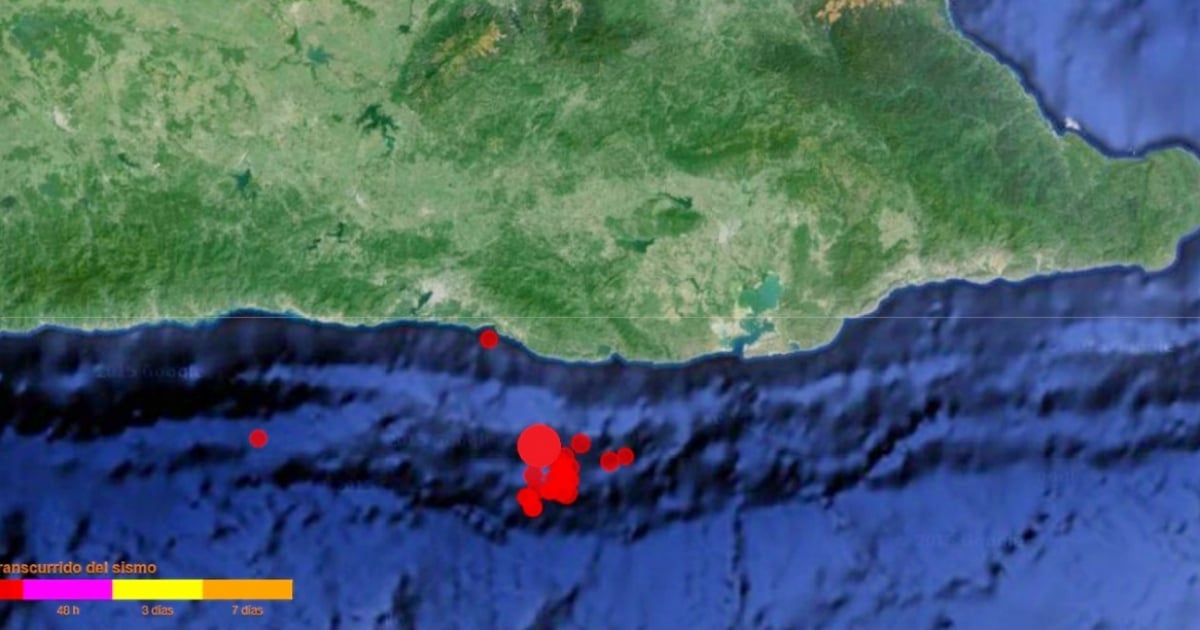
The National Seismological Service of Cuba (CENAIS) recorded a magnitude 3.8 earthquake on the Richter scale this Saturday, which was noticeable in the province of Santiago de Cuba.
According to experts from CENAIS, the earthquake, which occurred at 7:09 p.m. local time (01:08 GMT), did not leave any injuries or cause material damages.
The earthquake, the eleventh one felt in Cuba so far this year, had its epicenter 41 kilometers southeast of the province of Santiago de Cuba and at a depth of 33.8 km.
Enrique Diego Arango Arias, head of the National Seismological Service, specified on Facebook that the central station of CENAIS in Santiago de Cuba was on alert for seismic activity, as there were several aftershocks.
"This earthquake today, unlike others of similar magnitude, is generating a significant number of aftershocks (aftershocks are always of lower magnitude than the main earthquake)," he pointed out.
In 2023, Cuba recorded a total of 7,475 earthquakes, of which 14 were perceptible, with magnitudes ranging from less than 3 to 5.9 on the Richter scale.
The geological fault of Oriente, the main zone of seismic activity on the island and part of the tectonic plate boundary in the southern region of eastern Cuba, was responsible for the highest number of earthquakes in the country during the past year.
Cuba is located in a region that stretches from the Dominican Republic to Mexico, where several tectonic fault systems converge, resulting in significant seismic activity.
In July, specialists from six countries, including Cuban experts, participated in a scientific expedition in the Caribbean focused on studying the seismic zone of Santiago de Cuba.
In that expedition, researchers from Cuba, France, Belgium, Germany, Haiti, and the United States determined geophysical parameters and used equipment to obtain precise records of possible faults.
What do you think?
COMMENTFiled under: